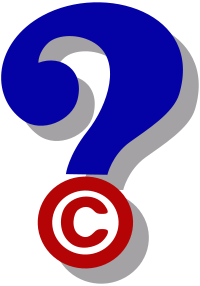
Image: CC Stephan Baum
It makes me sad that many people don’t already know the answer to this question, but experience tells me they don’t. So consider this a public service announcement on behalf of content creators everywhere. (Yes, my writer and illustrator friends, this one’s for you.) And for those of you who already know the answer to the question, please join me in a campaign to spread the word.
Does copyright law apply to articles and images you find on the Internet? Yes.
Can you use it on your website (or email or presentation) anyway, as long as you give the original owner credit and/or a link? No.
Really?
Really, it’s that simple. There are a few nuances, of course. Some websites invite you to reuse their content – or specific content – because they want the information to be distributed widely and freely. Some content is posted with a “Creative Commons” license that allows it to be reused or redistributed, often with certain conditions such as a link back to the original.
But the bottom line is that copyright protection is independent of the medium in which content is displayed. The mere fact that something is on the Internet and easy for you to download or copy and paste does not mean that you are free to download it or copy and paste. You need to ask the owner’s permission, and in the absence of explicit permission to use the material you have to assume that it’s copyrighted.
(And yet, there are people who don’t get this. In fact, not 12 hours after publishing this post, I ran across this piece on Jim Romenesko’s media blog, which looks like it could show an example of this confusion.)
The infographic below is embedded on this website because the original author has made it available for embedding on other sites. Otherwise, I’d have no business using it and would simply link to it on its original site. ‘Nuff said. Enjoy.
++ Click Image to Enlarge ++

Source: Copyright Infringement: Myths vs Facts
